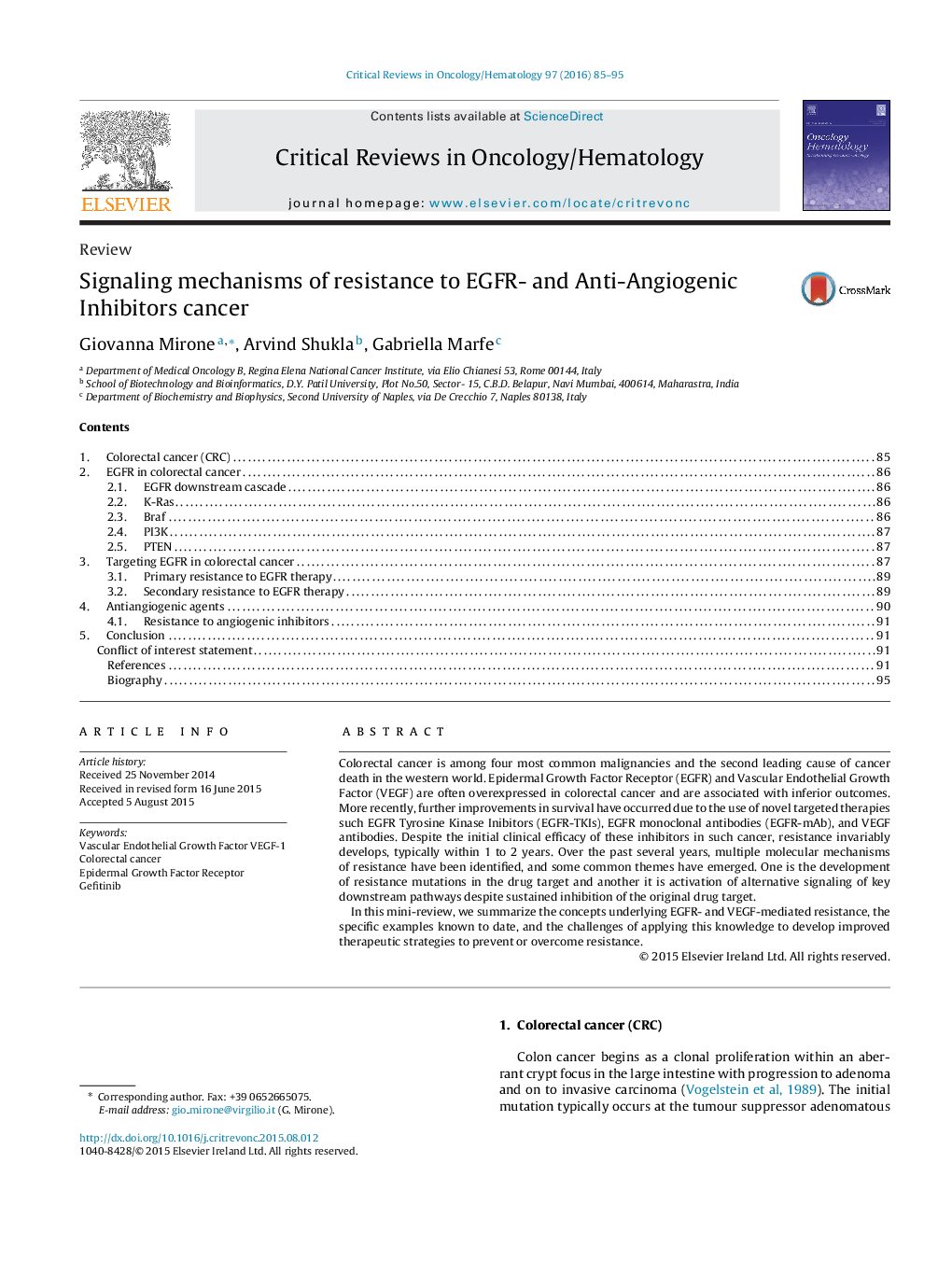| Article ID | Journal | Published Year | Pages | File Type |
|---|---|---|---|---|
| 3328553 | Critical Reviews in Oncology/Hematology | 2016 | 11 Pages |
Colorectal cancer is among four most common malignancies and the second leading cause of cancer death in the western world. Epidermal Growth Factor Receptor (EGFR) and Vascular Endothelial Growth Factor (VEGF) are often overexpressed in colorectal cancer and are associated with inferior outcomes. More recently, further improvements in survival have occurred due to the use of novel targeted therapies such EGFR Tyrosine Kinase Inibitors (EGFR-TKIs), EGFR monoclonal antibodies (EGFR-mAb), and VEGF antibodies. Despite the initial clinical efficacy of these inhibitors in such cancer, resistance invariably develops, typically within 1 to 2 years. Over the past several years, multiple molecular mechanisms of resistance have been identified, and some common themes have emerged. One is the development of resistance mutations in the drug target and another it is activation of alternative signaling of key downstream pathways despite sustained inhibition of the original drug target.In this mini-review, we summarize the concepts underlying EGFR- and VEGF-mediated resistance, the specific examples known to date, and the challenges of applying this knowledge to develop improved therapeutic strategies to prevent or overcome resistance.
